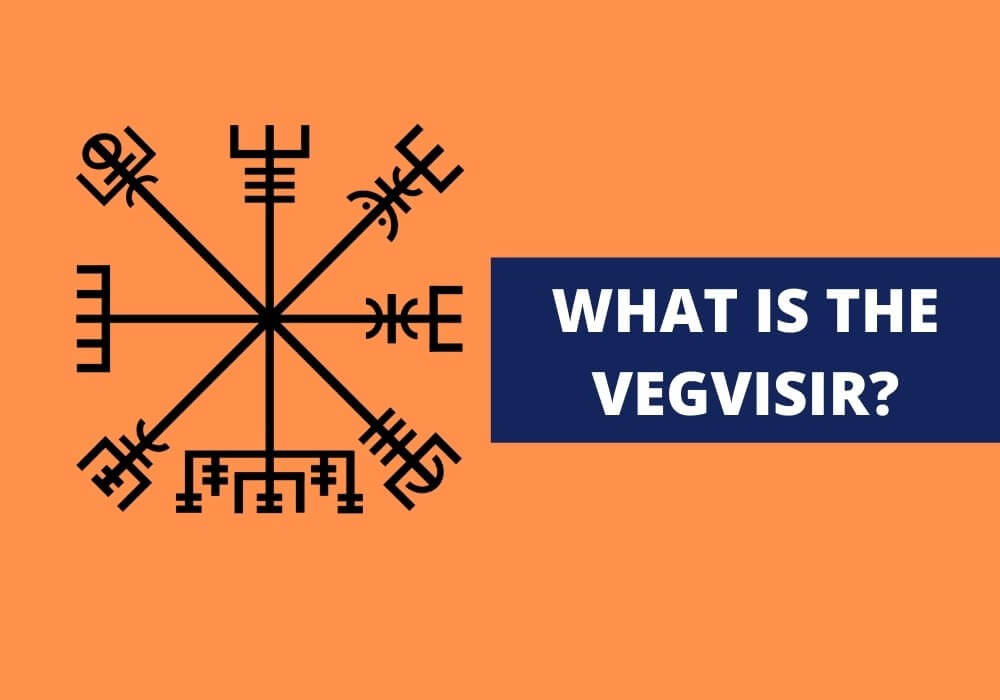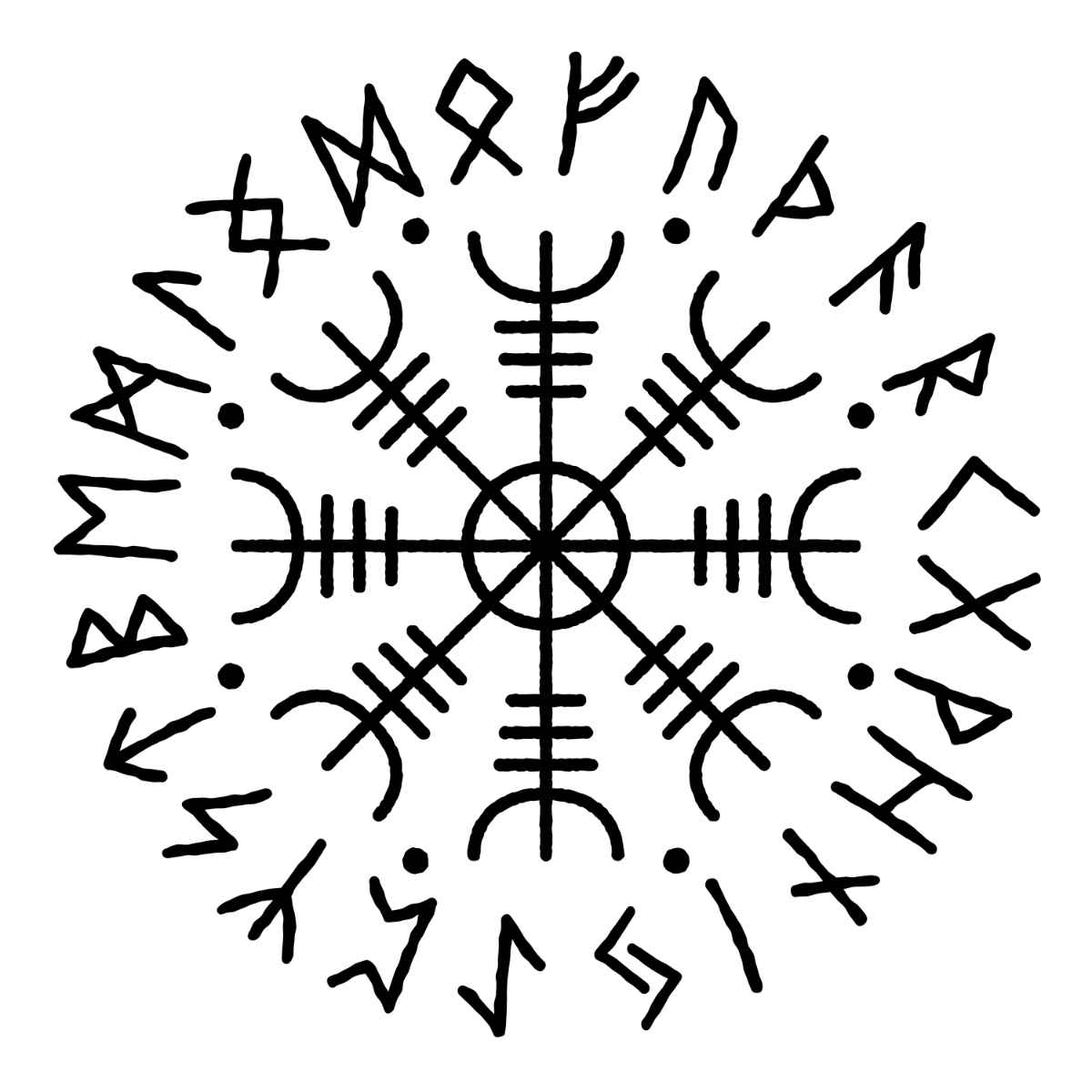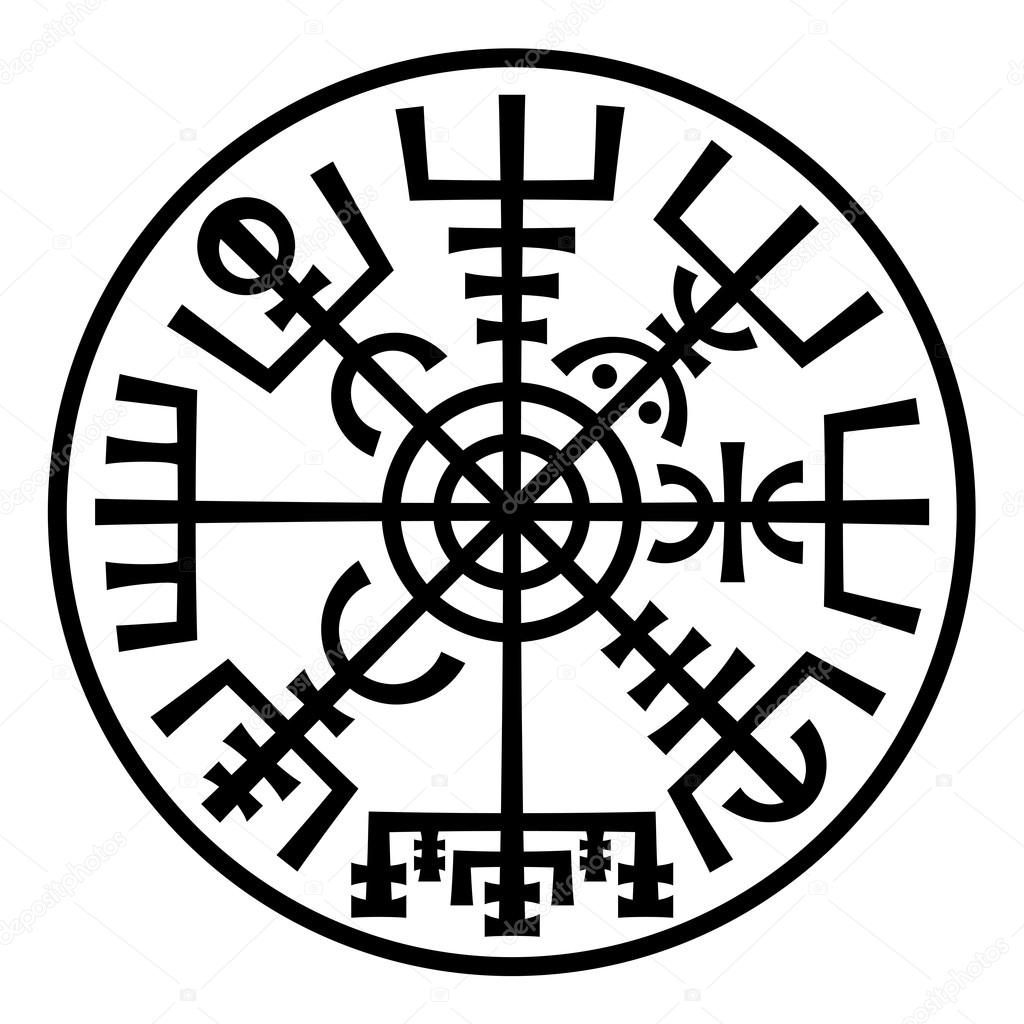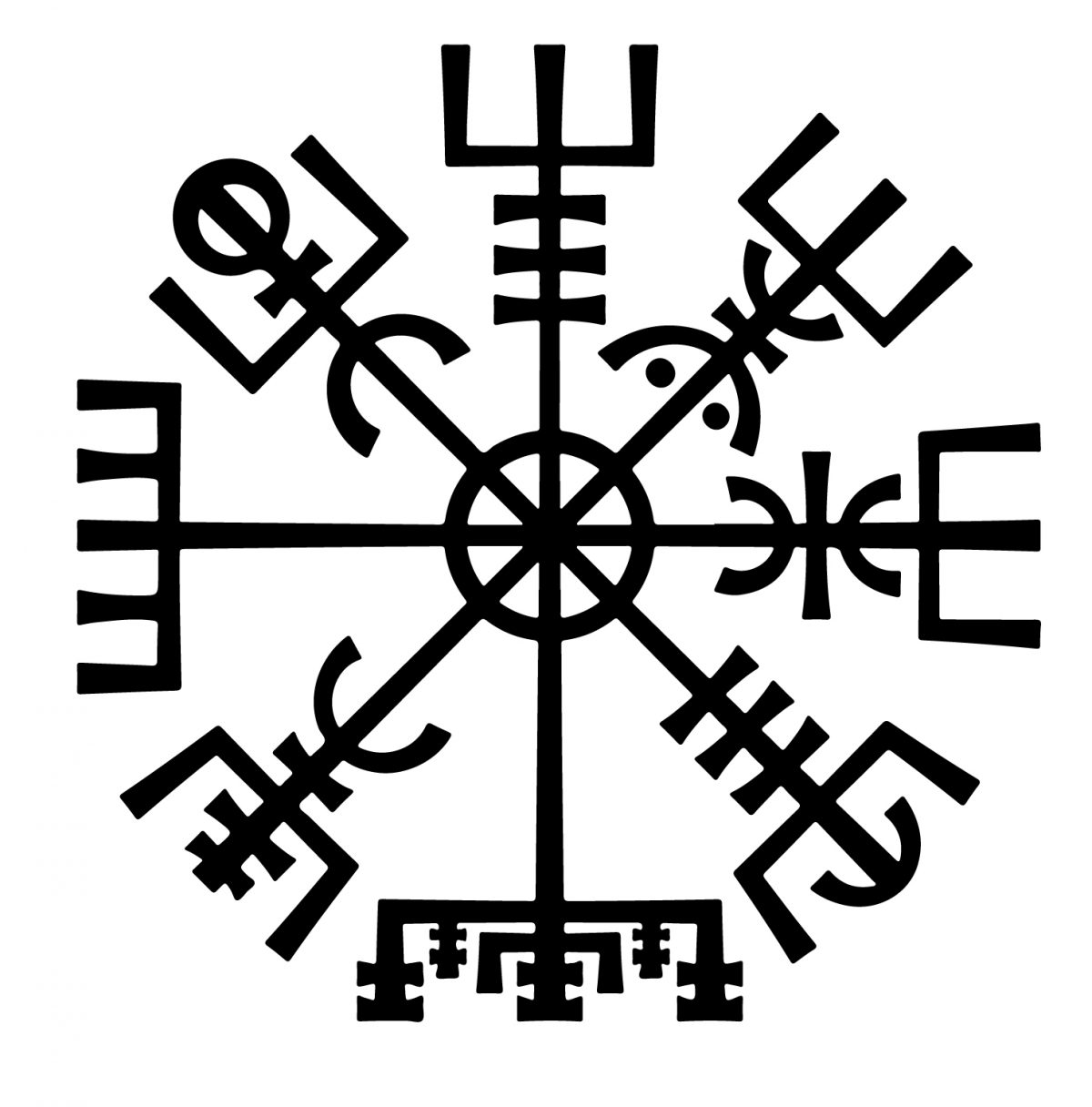
Vegvisir Symbol Meaning, Origins and History Symbol Sage
Vegvisir Meaning. Vegur refers to the first part of this nordic word, meaning 'way, road, or path.' Visir refers to 'path' or 'guide.' The Icelandic people developed this word and the subsequent vegvisir meaning by combining the words' vegur' and 'visir.' How do you Pronounce Vegvisir? The vegvisir pronunciation is 'Vegg.

Decoding the Viking Compass The Meaning Behind the Vegvisir
The Vegvisir (pronounced VEGG-vee-seer) is an ancient Norse symbol that is believed to provide safety for those who are embarking on a long voyage. The Vegvisir is believed to have originated in Iceland. It's a common misconception that Viking ships bore the Vegvisir; historical evidence for this is scarce. The earliest known references to.

The Vegvísir, or "Runic Compass" Norse runes, Norse symbols, Viking symbols
The one that today is also called Vegvisir compass, is composed of two words. The first is "Vegur" and means road or path. The second is "Visir" and represents the guide. In Icelandic language, largely based on the old futhark used by the Vikings, Vegvisir means traveler and sign post.

Vegvisir Viking Tattoo Meaning & Why You Want One Tattoo Glee
The Vegvisir holds deep meaning and symbolism within Norse culture. Its interpretation as a Viking Compass is rooted in the belief that it guided its bearer safely through treacherous journeys. The protective and guiding essence of Vegvisir is seen as a powerful symbol, offering assistance and direction.

Vegvisir Runic Compass Fascinating images and meaning 【Best of 2023】
The notion of the Vegvisir as a 'Viking compass' may be completely off-course, since the symbol was first recorded in Iceland 800 years after the Viking Age.. The meaning is somewhat challenging to translate, but it suggests that to avoid getting lost, one should keep the Vegvísir sign under their left arm and believe in it and in God. The.

Vegvisir / Viking Compass Norse Runic Symbol of Protection Viking tattoo symbol, Norse
Vegvísir. The vegvísir ( Icelandic for "wayfinder", lit. 'way shower') is an Icelandic magical stave intended to help the bearer find their way through rough weather. The symbol is attested in the Huld Manuscript, collected in Iceland by Geir Vigfusson in Akureyri in 1860, [1] and does not have any earlier attestations.

Viking Symbol Vegvisir Futhark Rune Magical Navigator Compass Meaning Art Board Print
The Vegvisir is one of many magical staves that originate from the unique mixture of Norse paganism and Christianity that emerged in Iceland after the Viking Age. The text included with the stave suggests that it protects those who would get lost due to bad weather and other unforeseen events.

Vegvisir. The Magic Compass of Vikings. Runic Talisman (In The Ring). — Stock Vector © Photon
The Vegvisir, known as the Viking, Runic, or Nordic compass, is a complex symbol made up of eight runic "staves.". There are a number of different variations of the design scattered throughout popular culture, but in each one, the symbol features eight crossing lines, with images at the end of each stave. Some people believe the symbol was.

Vegvísir/Viking Compass Origin and Meaning(2020 updated) Norse symbols, Viking symbols, Norse
The Vegvisir, also known as the runic compass or the Viking compass/Nordic compass made of eight Viking rune staves, is a symbol of protection and guidance believed to be used as a compass by Vikings. The word vegvisir means 'wayfinder' and 'sign post' in Icelandic language.. Although it is commonly known as the Viking compass and associated by some people with the voyages Vikings made.

Vegvisir Viking Compass Norse symbol Spiritual Guide Artifact Norse symbols, Compass
Discover the Meaning of the Vegvisir and its 8 branches, this mysterious and ancestral Nordic symbol. Ideal for viking tattoos.

Vegvisir Der Wikinger Kompassder Runenkompass Dieses Symbol Wird Images
IV. The Meaning and Symbolism of the Vegvisir in Norse Mythology. The Vegvisir is a powerful symbol in Norse mythology, representing guidance and protection. The eight arms of the symbol are said to represent the eight cardinal directions, and the center point is thought to represent the center of the universe.

Vegvisir, The Symbol of Guidance and Protection & Its Meaning The Viking Compass/Runic Compass
Understanding the Meaning and Interpretation of Vegvisir. The Vegvisir, often referred to as the Viking or Nordic Compass, is a symbol steeped in mystery. But what does this enigmatic emblem truly signify? Decoding the Symbolism within Vegvisir. This magical stave from Icelandic lore has eight runic arms radiating from a central point.

The Vegvisir Norse Mythology for Smart People
Vegvisir Meaning: Viking Symbol of Guidance. Vegvisir got its name by combining the Icelandic words vegur (road or path) and visir for which the closest translation in this context is ''guide''. Its more basic meaning is signpost or wayfinder. From this, we can get the meaning of vegvisir - runic compass.

See the Way vegvisir drawing viking compass Viking compass tattoo, Viking art, Compass rose
The Vegvisir. The Vegvisir (Icelandic Vegvísir, "That Which Shows the Way;" pronounced "VEGG-vee-seer") is a symbol described only in one modern Icelandic collection of spells, the so-called Huld manuscript. That book has nothing more than this one sentence to say about it: "If this sign is carried, one will never lose one's way in.

Viking Compass Tattoo Designs Vegvisir Tattoo
What is the Meaning of the Viking Compass? This word translates to 'sign post' or 'way finder'. The word Vegvisir is pronounced "VEGG-vee-seer", The "g" is a hard "g". It itself means something like "way finder"; it is Vegr (way) and Visir (shower). It is an eight-pointed shape, with each point having a unique design.

Vegvisir, The Symbol of Guidance and Protection & Its Meaning The Viking Compass/Runic Compass
A modern version of the Vegvisir based on the original square-shaped symbol displayed in the Huld manuscript. It can be described as four lines crossing each other in the middle, with different — but similar — symmetrical symbols and patterns decorating the ends of each line. Hang some Old Norse mythology on your walls.